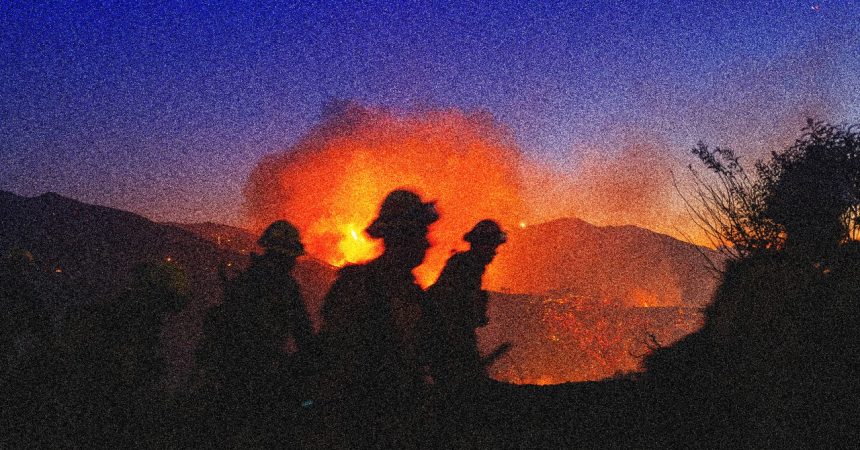The devastating wildfires in Los Angeles have attracted a disturbing presence: extremist groups, including white supremacists and far-right livestreamers, exploiting the crisis for their own gain. These individuals and groups, under the guise of providing aid and support, are engaging in what experts term “disaster tourism,” leveraging the tragedy to boost their online presence, solicit donations, and potentially recruit new members. Their actions raise serious concerns about the manipulation of vulnerable communities and the cynical use of disaster relief for furthering extremist agendas.
The case of Ryan Sánchez and his Nationalist Network exemplifies this troubling trend. Sánchez, a known figure in the white supremacist movement with ties to Nick Fuentes and the now-defunct Rise Above Movement, traveled from Arizona to Los Angeles with his group, ostensibly to provide assistance. Despite claiming to have donated collected goods to a veterans’ shelter, experts remain skeptical of their true motives. Sánchez’s past involvement in extremist activities, coupled with his online rhetoric and association with known hate figures, casts serious doubt on his purported altruism. The fact that his donation link directs funds to his personal Cash App account further fuels suspicions regarding the actual destination of these contributions.
The exploitation of crises by extremist groups is a recurring pattern. Following the model seen during Hurricane Helene, these groups utilize disasters as opportunities to generate propaganda, portraying themselves as helpful and concerned citizens while simultaneously pushing their ideological agendas. This tactic allows them to gain sympathy and support from unsuspecting individuals, normalizing their presence within the affected communities. The potential for these groups to divert resources intended for genuine relief efforts poses a significant threat, depriving those in need of crucial aid and support.
Beyond the Nationalist Network, the Los Angeles wildfires have also drawn the attention of MAGA livestreamers, who have flocked to the scene, broadcasting footage of the aftermath while soliciting donations from their followers. This convergence of extremist elements highlights a disturbing trend of exploiting tragedy for personal and ideological gain. The blending of performative aid with online fundraising raises concerns about the transparency and accountability of these efforts. The lack of oversight surrounding these donations leaves open the possibility of funds being misused or diverted for purposes other than disaster relief.
The actions of these individuals and groups underscore the need for increased vigilance and awareness regarding the ways in which extremist ideologies can be propagated during times of crisis. While genuine aid and support are crucial in disaster situations, it is essential to critically examine the motives of those offering assistance. The potential for extremist groups to exploit vulnerable communities under the guise of charity necessitates a cautious approach to donations and support. Scrutinizing the backgrounds and affiliations of individuals and organizations involved in relief efforts can help ensure that aid reaches those who truly need it, rather than lining the pockets of those seeking to exploit the situation.
The exploitation of the Los Angeles wildfires by extremist groups serves as a stark reminder of the dangers of unchecked online influence and the need for greater scrutiny of those who claim to be providing aid in times of crisis. The potential for these groups to gain followers, recruit new members, and spread their hateful ideologies through disaster tourism poses a serious threat to social cohesion. Increased awareness and critical evaluation of online content, coupled with support for legitimate relief organizations, are essential in combating the manipulative tactics of these groups and ensuring that aid reaches those who truly need it. Furthermore, stronger regulations and oversight of online fundraising platforms may be necessary to prevent the misuse of donations and hold those who exploit tragedy accountable.



